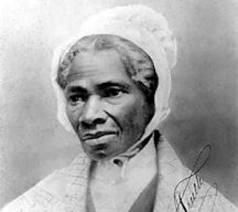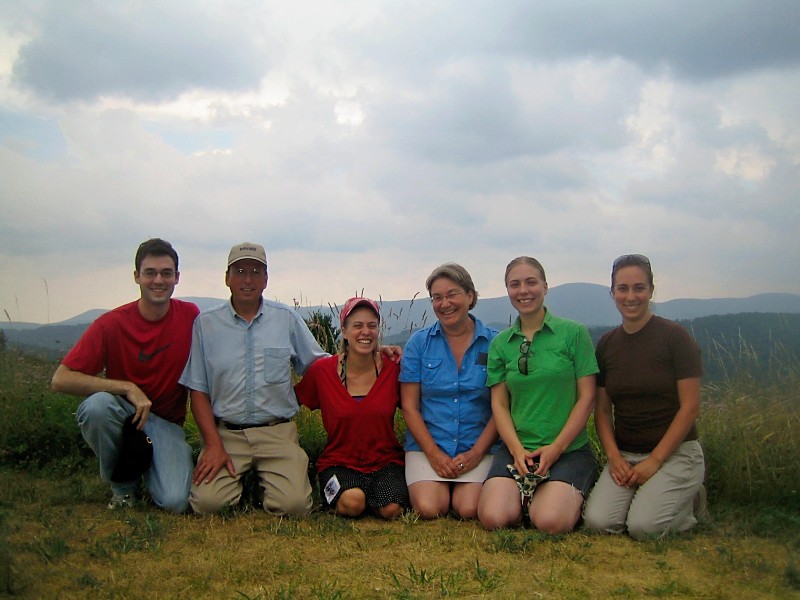Serendip is an independent site partnering with faculty at multiple colleges and universities around the world. Happy exploring!
Notes Towards Week 4 (Sept. 20): Place and No-Place
Inviting you into this place...
Carrie Underwood's "Temporary Home" and
Kyouko and Sayaka character song, "... and I'm home "

Utopia is an ideal community or society possessing a perfect socio-politico-legal system. The word was imported from Greek by Sir Thomas More for his 1516 book Utopia, describing a fictional island in the Atlantic Ocean. The term has been used to describe both intentional communities that attempt to create an ideal society, and fictional societies portrayed in literature. It has spawned other concepts, most prominently dystopia.
The word comes from the Greek: οὐ ("not") and τόπος ("place") and means "no place". The English homophone eutopia, derived from the Greek εὖ ("good" or "well") and τόπος ("place"), means "good place." This, due to the identical pronunciation of "utopia" and "eutopia", gives rise to a double meaning....
"Personally, I fear utopias most even as I yearn for them: the worst of humanity may have come when some have attempted to reshape the world according to any of the many mangificant utopias human cultures have produced" (Varenne, "Extra Burdens...")
[which is where we're headed by 9:30 p.m.!]
enroute...
I. Anne: Coursekeeping
* @ the end of class last week, I asked you to watch out for the action of the
in a moment, we'll ask to you tell one another about what you saw...
Anne's stories are about the implications of this "ideal" for education:
English Dept. presentation by BMC's institutional researcher, Mark Freeman:
"That's just a fact of nature: regression to the mean."
[commentary by Wil Franklin, Biology Lecturer:
Statistical regression toward the mean is not a causal phenomenon.....A classic mistake in this regard was in education. The students that received praise for good work were noticed to do more poorly on the next measure, and the students who were punished for poor work were noticed to do better on the next measure. The educators decided to stop praising and keep punishing on this basis. Such a decision was a mistake, because regression toward the mean is not based on cause and effect, but rather on random error in a natural distribution around a mean.]
Audre Lorde, Sister Outsider (1984):
"Somewhere, on the edge of consciousness, there is what I call a mythical norm, which each one of us within our hearts know 'that is not me' .... It is with this mythical norm that the trappings of power reside .... Those of us who stand outside that power often identify one way in which we are different, and we assume that to be the primary cause of all oppression, forgetting other distortions around difference, some of which we ourselves may be practising...."
* continuing to get acquainted...
gather in groups of 3-4 w/ folks you
haven't yet worked w/ in a small group;
tell one another about where/how you observed
the normal in operation this week....
(failing that, discuss Anne's examples!)
watch out for it!
stay in your newly formed small groups, please, as we
engage in a few class-normalizing/non-normalizing gestures
* today's snacks by lwacker and charlie (thanks!);
up next week are AmyMay and someshine
* sign in -- and sign up for writing conferences,
to discuss first paper, due SUN, OCT. 2:
"en/abling intra-actions of gender, sexuality, disability and/or....?"
* come prepared w/ ideas & sources to discuss them that you're not yet too attached to!
* think about what it means to publish on the web: audience? visuals? audios?
* expand on your postings, those of others (reading Josh Blue, Britain's Missing Top Model...)
* draw in/think through material from other courses/investments:
phenom quoting from her poli sci seminar: "Problems are not simply conditions …
there is also a perceptual, interpretive element" //s impairment --> disability)
AmyMay: I am left wondering what ... entanglement can contribute to system correcting activism. As a treatment addressing the symptoms and not the causes, do practices of diffraction and entanglement have a place in system correcting praxis? Are the two ideas diametrically opposed?
* range of examples from the last time I did this in the core course (seen some already,
from Cripping Sex and Gender panel: Emily Bock on breast cancer, Emily Shaw's Freak Show) --
but those students had to write about the intersections of disability, sex and gender
your invitation is larger: you are welcome/invited/not required to...
your assignment is to think/research/write about the intra-actions of sex and gender
w/ .... some other identity category/field (critical race studies? poli sci? biology? literature?)
charlie: "I have never studied a class that was so “inter-“ before; so interdisciplinary, so intermethod
(... using different mediums, teaching style ... and viewpoints to express an idea), and so intertopic.
yeah! and! yet! but! we're nudging you on beyond inter- to intra- (as per Barad):
...'we' have 'intra-actively' written each other ('intra-actively' rather than the usual 'interactively' since writing is not a unidirectional practice of creation that flows from author to page, but rather the practice of writing is an iterative and mutually consitutive working out, and reworking, of 'book' and 'author')....
"To be entangled is not simply to be intertwined with another, as in the joining of separate entitites, but to lack an independent, self-contained existence. Existence is not an individual affair. Individuals do not preexist their interactions; rather, individuals emerge through and as part of their entangled intra-relating."
* Speaking of which!...a reminder to post your week's reflections by Sunday @ 8 p.m.,
(good place to try out your paper ideas, maybe get some reactions,
start a conversation....? let's try to comment more on one another's posts)
* Next week's readings will conclude this first "act" of the course,
on Dis/Ability and Intra-Action, w/ a focus on the limitations
of our ways of seeing/hearing....and writing academic discourse:
open up some new possibilities for doing this work; as additional spur,
look @ page I've been updating @ On Beyond Webpapers.....
see especially the senior blog on Seeing Stigma
(on the representation of mental illness, and activism)
then read Margaret Price's 2011 Forward, Introduction and Chapter 1 of
Mad at School: Rhetorics of Mental Disability and Academic Life, and
Lawrence D. Rosenblum's 2010 "The Sounds of Silence" & "See What I'm Saying,"
Chapters 1 & 10 from See What I’m Saying: The Extraordinary Powers of our Five Senses.
(all in our password-protected file: 50 pp. plus 60 pp.....)
both these texts will also invite you to think more broadly/
differently about what it means to write college essays...
any general course-keeping questions??
Before moving forward, we're going to look back a bit.
Taking continued inspiration from Stephen Dedalus, via essietee:
"We are all part of something larger than ourselves....
we've artistically/delightedly organized tonight's conversations
between the poles of "place and no-place":
first, Kaye will help us think back, through Eli Clare,
about that place which constitutes "home,"
and how this concept might open up/further our study of gender and sexuality;
then after break, I will use McDermott, Varenne, and Grobstein
to help us think about that no-place known as "utopia."


II. Kaye: "going back home" with Eli Clare ....
starting with repetition
Submitted by rachelr on Thu, 09/08/2011 - 5:23pm:
While reading Eli Clare there stood out to me many strong and moving images .... However as the pages on logging continued to mount, and the same description of his rape and the same remarks about high school and into college continued to appear again and again in chapter after chapter I found the potency of the words waning.
One of her interpreters ... said that among the deaf community, it is common to be overly repetitive or long-worded when telling a story or sharing an opinion. This stems from the feeling of the community (not a universal, stereotyped feeling, but a common feeling nonetheless) that they are not heard. They feel that that they are not listened to and not fully understood. So as a way of forcing others to pay more attention and hopefully gain a better understanding, many deaf people express themselves wordily and repetitively.
I know Eli Clare isn't deaf, and I also know that to put all disabled people in a common box perpetuates the "normal myth" and the idea that all disabled people are the same. However, I think that the deaf metaphor deserves to be extended not just to disabled people, but to all marginalized people. Anyone who has ever felt shunned or kicked to the wayside by society likely fears that they will never be truly heard or understood. This could explain, at least partly, why Clare is so over-persistent in driving his points home.
Rhetorical potential of repetition in preaching
Sojourner Truth 
Delivered 1851 at the Women's Convention in Akron, Ohio
That man over there says that women need to be helped into carriages, and lifted over ditches, and to have the best place everywhere. Nobody ever helps me into carriages, or over mud-puddles, or gives me any best place! And ain't I a woman? Look at me! Look at my arm! I have ploughed and planted, and gathered into barns, and no man could head me! And ain't I a woman? I could work as much and eat as much as a man - when I could get it - and bear the lash as well! And ain't I a woman? I have borne thirteen children, and seen most all sold off to slavery, and when I cried out with my mother's grief, none but Jesus heard me! And ain't I a woman?
Clare repeats the refrain "The body as home" five times over 3 pages (11-13) in Exile and Pride:
"The body as home, but only if it is understood that bodies are never singular, but rather haunted, strengthened, underscored by countless other bodies" (11).
"The body as home, but only if it is understood that place and community and culture burrow deep into our bones" (11) .
He also talks repeatedly about a place for which he is homesick,
a homesickness that reaches into his body:
"What I don't say is how homesick I feel for those place names, plant names, bare slopes, not nostalgic, but lonely for a particular kind of familiarity, a loneliness that reaches deep under my skin, infuses my muscles and tendons. How do I explain the distance, the tension, the disjunction between my politics and my loneliness?" (19)
Where were you born, where have you lived and how does that burrow into your bones?
What does it do to you when people are ignorant or dismissive of your places of origin,
growth and development?
My discomfort, feeling of alienation in being a Hoosier on the East Coas
The world as seen from New York's 9th Avenue (New Yorker cartoon)
In grade school, my favorite subject was geography.
Map yourself on/in the world: where are you most comfortable?
What place is most familiar? What else is in focus?
And what is out of focus, from the perspective of your homeplace?
Share your map w/ one other person in your group.
So: how is locating ourselves @ home useful in the work we are doing here?
i learned from Moonwalking with Einstein: The Art and Science of Remembering Everything by Joshua Foer (2011) about "memory palaces" (pp. 96-105) -- which invite the possibility/potentiality of re-membering where we are, and might go.
For example, the metaphors of the mountain, for Eli Clare and me:
"The mountain will never be home, and still I have to remember it grips me" (Clare, 13).
"The mountain as metaphor looms large in the lives of marginalized people, people whose bones get crushed in the grind of capitalism, patriarchy, white supremacy. How many of us have struggled up the mountain, measured ourselves against it, failed up there, lived in its shadow?" (1)
The mountains that feed my soul --
because of the vista and horizon
(vs. claustrophobia of Pennsylvania!)
Re-making home: more "home" than Indiana

What do we need to make a new home?
What would it mean to call our bodies home?
http://unmakeablelove.org/movie.htm
We are embodied creatures who crave touch. Infants not held do not thrive.
Does this need continue throughout life or do we outgrow it?
III. Breaking, stretching, snacking....
to the tune of (so, forgive her!)
Jim Nabors' rendition of "Back Home Again in Indiana"
at the Indy 500 in 2011--very Hoosier! .... and
Louie Armstrong's "Back Home Again in Indiana"
IV. Anne: Today's readings--a sequence of three essays/on-going conversation on
"Culture as Disability," the "Inevitability of Cultural Disabilities," and "Cultures of Ability":
The first essay claims that "culture, the great enabler,
is disabling" (or: disabilities are cultural products).
Paul comments,
"McDermott and Varenne argue compellingly (for me at least)
that human cultures have interrelated bright and dark sides."
Kaye comments: Nodes and anti-nodes!!!!
In your "get-acquainted" working groups of four,
draw a (teaching) map of McDermott and Varenne's essay:
what's the goal they're aiming towards, and how do they get there?
As a way of figuring your relationship to their argument,
then place each of yourselves on (or off) that map.
Go visiting one another's maps.
Return to the large group for discussion:
Varenne says, in the second essay, that cultural disabilities are inevitable:
"the best of mundane intentions can place new [unnecessary] burdens"
on those we mean to help; so "talk in terms of added burdens
('handicaps') rather than in terms of disabilities"--we disable one another.
Paul counters that claim by asking if there can "be a culture which does NOT disable/disadvantage ANYONE in it?".... if we can "recreate our culture to make everybody a meaningful contributor ... build on diverse abilities rather than deficits ... an assembly of strengths ... learning to be less critical and more generous with ourselves...."?
lwacker: My first reaction to a non-disabling culture … was that it was an absurd idea …. it would be splendid to live in union and identify with others based on the skills and abilities they do possess, but … being the voyeur is so much a part of the unconscious shared human experience that to promote an abling culture that doesn't point out or identify difference would be near impossible.
alice.in.wonderland: While I find it mind-bending and inspiring to read radical/theoretical texts (and I would put these in that category), I also think it's ok to be annoyed when such theoretical texts never explicitly admit the degree to which their ideas require some kind of HUGE fundamental shift in society. I guess no author is obligated to link their theory to practice, their ideas to actions ... but I'm a pragmatic person, and ... I felt like the readings progressively move toward acknowledging the kind of deeper radicalism (especially new political and economic systems) such ideas require. I am curious to see how we put these texts into dialogue with Wilchins and Clare, whose emphasis on linking theory and practice we have collectively admired. How might we push these ideas to better match their emphasis?
So let's try to do this!
How does this essay "about the powers of culture to disable"
(the deaf, the LD, the pest exterminators....)
--and the subsequent conversation it generated--
help us to think about gender and sexuality?
There is one [parathentical!] mention
of our [ostensible!] subject in the original article
(it sounds like the tumbling, jumbled encyclopedia entry
from Borges, w/ which Foucault begins The Order of Things);
"the fabrication and handling of disorders are obviously the product of people being hard on each other in social interaction (e.g., the inarticulate, the insecure, the anorexic, the depressed, the lying and ocnniving, the alienated, the foolishly omniscient, and the full range of virtually every body being insufficiently gendered to current biases). Each would require a complex analysis."
Let's begin looking @ that complexity....
Kristin laid out two years (= ventriloquized by me one week) ago
four relations between gen/sex and disability:
1) analogous: differences of gen/sex operate like differences in physical/cognitive ability
Gavi's post: "being a woman today can be construed as a disability. We can be disabled by the ideal of fragmented, Frankenstein'ed bodies--figuratively missing limbs and parts in a quest toward idealized perfection--and denied the ability to be whole"
(can also use this to think beyond the impairment/disability =sex/gender binary)
2) additive (female/queer + disabled= doubly oppressed/devalued/marginalized -- or cool!)
3) hierarchical (disability is "more" other, a symbol/synecdoche for all forms of difference)
4) interactive/intersecting (Eli Clare: "gender reaches into disability; disability wraps around class; class strains against abuse; abuse snarls into sexuality; sexuality folds on top of race ... everything finally piling into a single human body")
Which of these avenues/paths might McDermott and Varenne help us pursue?
Which seems to us the most fruitful??
Return now to your mapping groups, and imagine a utopic world.
What it these ideas look like, practically/pragmatically,
in terms of actually changing the world we live in?
"Personally, I fear utopias most even as I yearn for them: the worst of humanity may have come when some have attempted to reshape the world accoridng to any of the many mangificant utopias human cultures have produced" (Varenne, "Extra Burdens...")
For example: how might you "map" the relation between the places that
are your "homes" and the "no place" that is the utopia you imagine??
Anne's....:)
The Dalkes "at home" in the Shenandoah Valley...
but/and....?
Naima "at home" w/ her mom!


